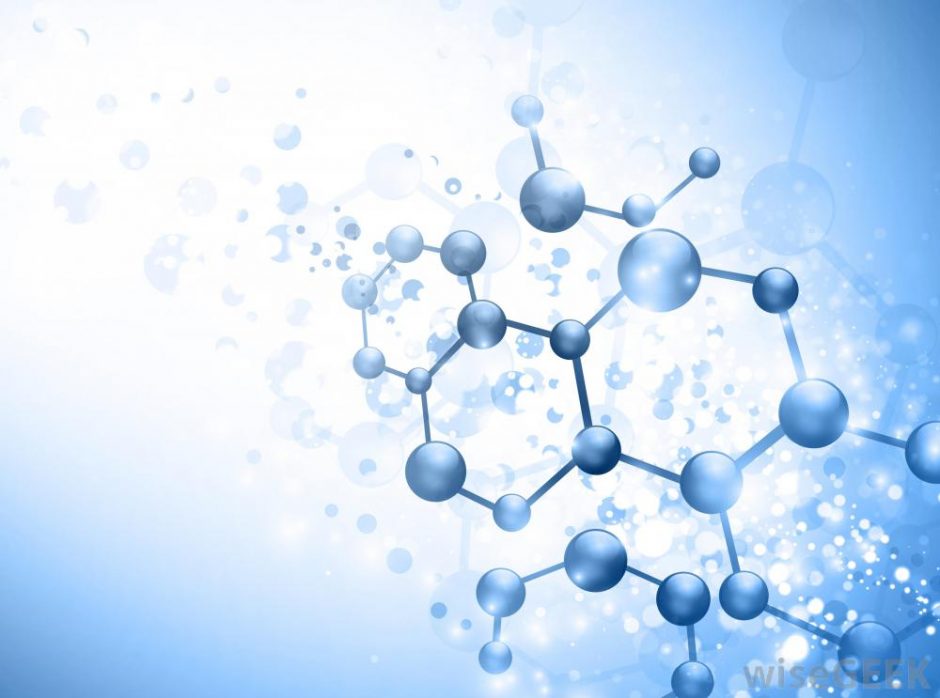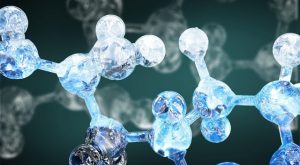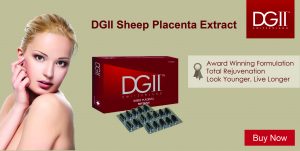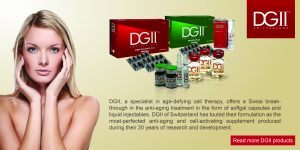
Can This One Molecule Restore the Health and Function of Every Cell in Your Body?
The short answer is yes! And this remarkable molecule is Polyenylphosphatidylcholine (PPC).

PPC may very well be the most important life–giving molecule on the planet, and at the same time, perhaps the most overlooked. Without this special molecule, life as we know it could not exist. That’s right, not a single living organism can exist without PPC. But, if this is true, then why is this molecule so often overlooked? Answer? We don’t know. Maybe it’s because the name itself is a tongue twister (Poly-Enil-Fos-Fah-Tidal-Ko-Leen), which is why we refer to it simply as PPC. Or, perhaps it’s because PPC positively affects so many biological processes that many people just can’t believe it is true. But it is true! All of it! PPC is a critically important molecule for life and should be considered a foundational component of every wellness protocol.
Dr. Sherry A. Rogers, M.D. has written extensively on PPC in many of her bestselling books and in her monthly publicationTotal Wellness. Dr. Rogers remarked in her book Detoxify or Die, “Because it (PPC) is part of the membrane sandwich (along with the right fatty acids and other nutrients), it is one of the reasons some people will never get better… because no one recommended it.”1
Dr. Robert Jay Rowen, M.D. stated in his monthly publication Second Opinion, “If you want to keep your cells young – and running at their highest efficiency, I think PPC is one of the most important supplements you can take.”2 You can find this molecules in the award winning supplement DGII Placenta Extract.
A published review of the literature by Dr. Karl-Josef Gundermann, “The Essential Phospholipids as a Membrane Therapeutic”, clearly demonstrates that the administration of PPC increases membrane fluidity, improves membrane functions and enzyme (receptor) activity, increases detoxification, increases liver synthesis capacity, enhances immunity, stimulates membrane regeneration and repair, reduces blood thickness and platelet aggregation, improves bile composition, improves lipid/lipoprotein metabolism, protects liver cells, protects beta cells of the pancreatic islets, and restores membrane fluidity to the mitochondria and other organelles.3
PPC can also increase endogenous glutathione (GSH) production. GSH is the body’s most important antioxidant. Supplemented PPC restores S-adensylmethionine (SAMe) levels to normal, a critical precursor molecule responsible for the production of cysteine and GSH. GSH is thought to be the body’s best line of defense against toxins, heavy metals, and free radicals.4
PPC is hands down the most essential phospholipid to enhance membrane health and function. And, like bricks in a wall, cell membranes act as barriers to protect each cell and organelle in the human body, maintaining cellular structure, function, and cooperation. Unfortunately, unhealthy choices (i.e., highly oxidized processed fats, processed sugar products, amino acid deficiencies, dehydration, among others) essentially starves cell membranes, and the once pliable and permeable building blocks become as stiff and impenetrable as real bricks.
When cells are no longer able do their job of exchanging nutrients, transferring oxygen, and eliminating waste, health and well-being is replaced with disease.
Over 1,000 experimental and clinical investigations clearly demonstrate that highly purified PPC with its high concentration of DLPC significantly improve membrane-dependent functions (i.e., enzyme activities) and are indispensable building blocks for life and total wellness.
Common Areas of Application
The Liver
The liver is by far the most overworked and under-appreciated organ in the body. It is the key biochemical factory in our body, responsible for most of the synthesis, metabolism, excretion, and detoxification necessary to live. Chronic damage to the hepatocytes leads to the formation of fibrotic tissue, which can eventually lead to cirrhosis. PPC’s cell protective effects have been corroborated in at least 140 clinical studies, with chemical substance, medication, alcohol, NAFLD, and radiation overload being some of the cases examined.
The Blood Vessels
PPC positively influences various biochemical pathways related to atherosclerosis, such as lipid peroxidation and lipoprotein alterations. Other results include improved cholesterol, triglyceride, and LDL-to-HDL ratios, and a reduction in atherosclerotic plaque formation. Excessive blood clotting is also reduced, and blood flow properties and microcirculation are improved.
Memory
It is well known that low choline levels, deficiency in unsaturated fatty acids and increased rigidity of neuronal membranes may influence metabolic processes and nerve function, leading to memory loss and concentration disturbances. It has been shown that long-term PPC use aids the brain with such problems.
Diabetes
Although PPC does not directly influence sugar levels, it protects pancreatic beta-cells against oxidative stress, acts as an anti-fibrogenic agent, helps treat metabolic syndrome by improving lipid levels through delaying and inhibiting diabetes-associated vascular processes, and improves clinical symptoms, such as myocardial infarction.
Gastrointestinal Tract
Scientific research has been able to determine that PPC has an affinity for the gastric and intestinal mucosa, which likely has a therapeutic effect on those tissues. It is thought that the positive influence of the polyunsaturated PPC on local biochemical mediators, lipid peroxidation, and collagen deposition in general, is also extended to the gastrointestinal tract. Studies show that PPC helps protect the gastrointestinal mucosa against stress ulcer formation, NSAID-induced inflammation, and colitis.
Skin and Aging
Skin and other membranes change composition during the aging process, as more cholesterol and less PPC with polyunsaturated fatty acids are incorporated into the membranes. They frequently become more rigid, partly recognized as wrinkles. PPC increases membrane flexibility, fluidity and permeability, encouraging cells to become more active again.
References:
1. Sherry A. Rogers, M.D.: Detoxify or Die; (2002)
2. Robert Jay Rowen, M.D.: Second Opinion, How to Rejuvenate Your Cells and Stay Young Longer, Vol. XXII, No. 5 May 2012
3. Karl-Josef Gundermann: The Essential Phospholipids As a Membrane Therapeutic, Polish Section of European Society of Biochemical Pharmacology; (1993)
4. Aleynik SI, Lieber CS: Alcohol & Alcoholism 2003; 38: 208-212
*These statements have not been evaluated by the Food and Drug Administration. This product is not intended to diagnose, treat, cure or prevent any disease.


